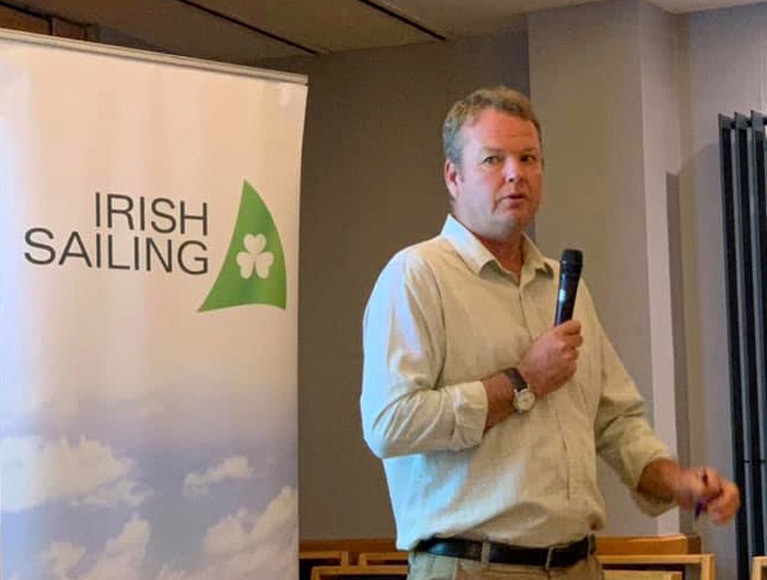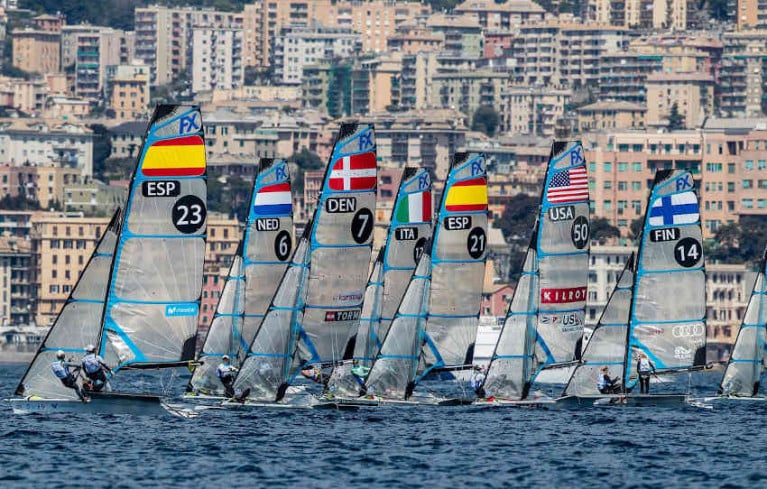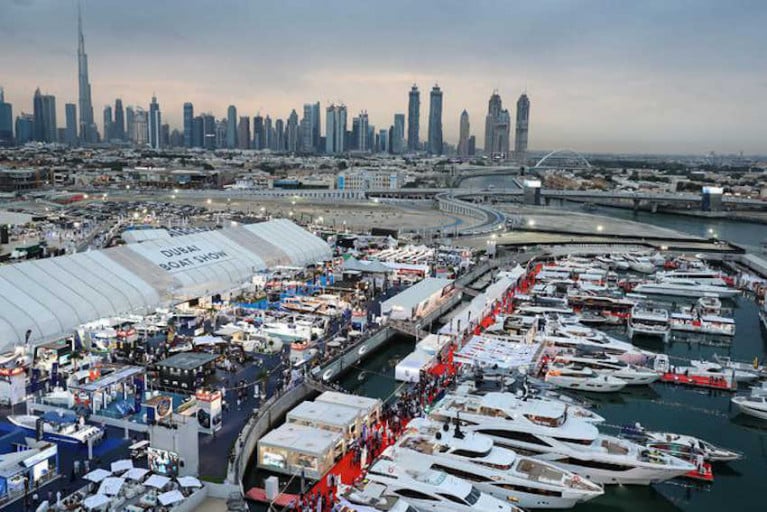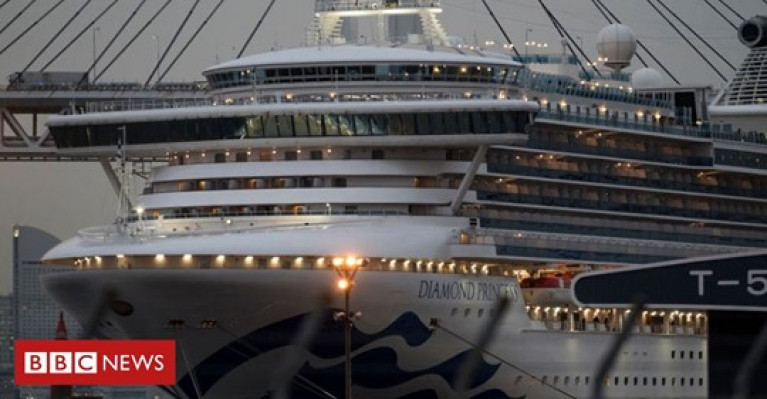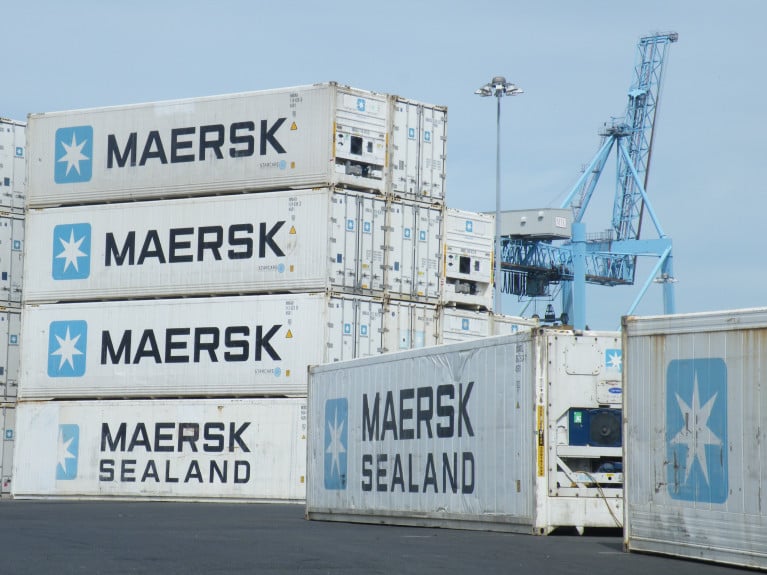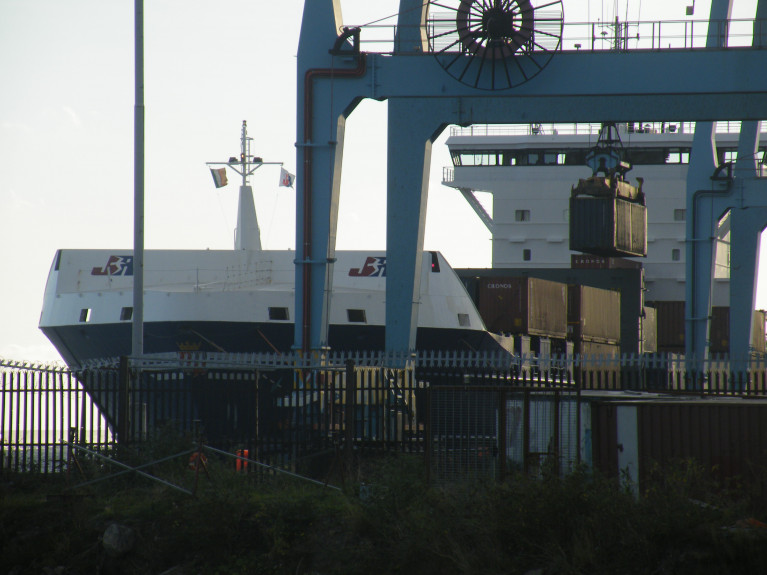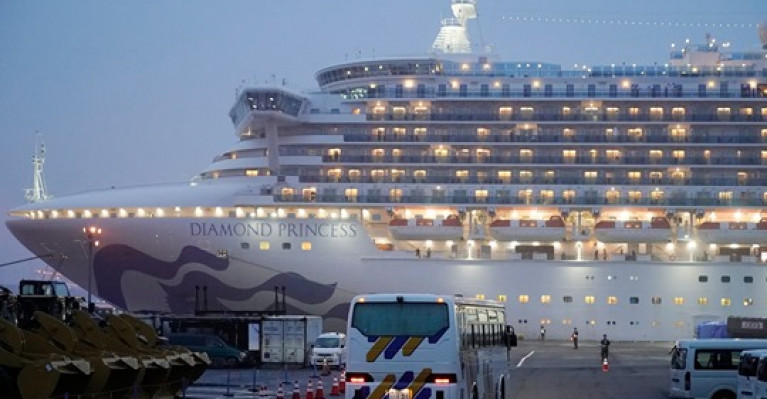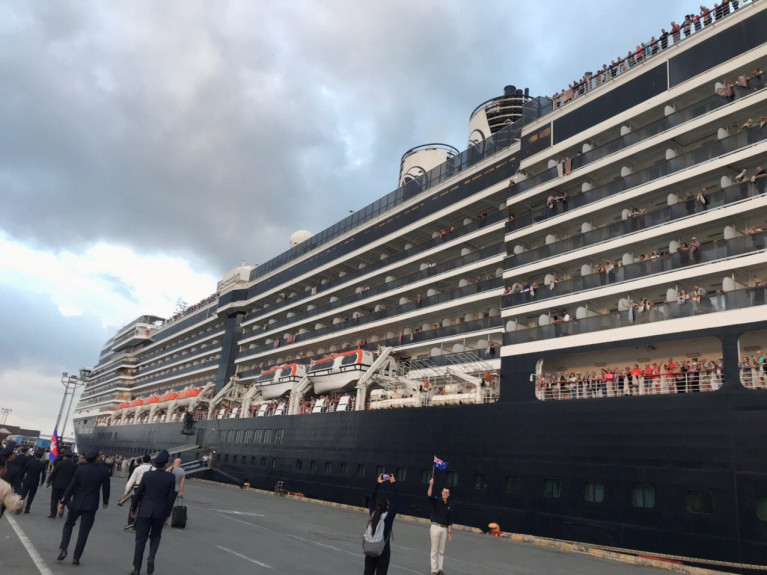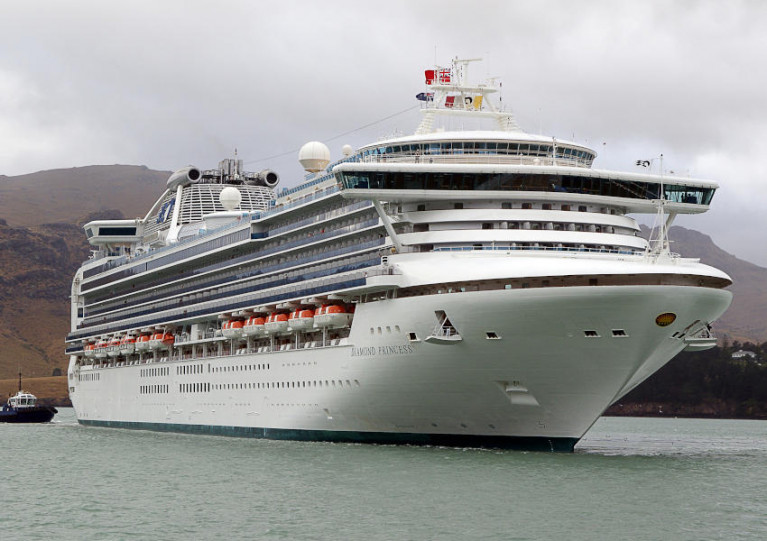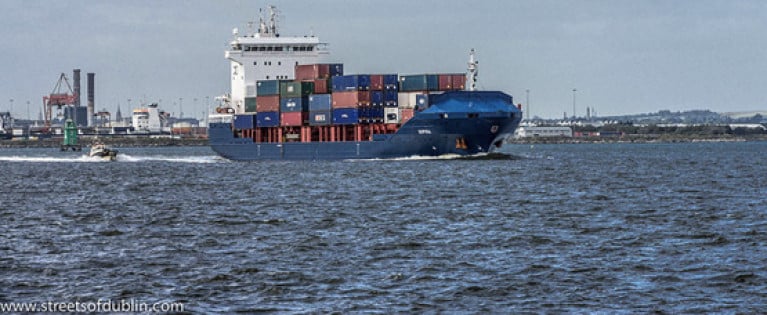Displaying items by tag: Coronavirus
Irish Sailing ‘Following HSE Advice’ On Coronavirus, All Events Going Ahead As Scheduled
Irish Sailing confirms it is following HSE advice regarding COVID-19/coronavirus, which at present does not prohibit public gatherings and/or impose travel restrictions other than to China and northern Italy.
“Until further advice is issued, we will assume that all events are able to go ahead as scheduled,” says Irish Sailing chief executive Harry Hermon.
“Taoiseach Leo Varadkar has said the Government is not recommending that ‘at this stage’ any planned large gatherings are cancelled. He also appealed for people not to take unilateral action when it come to closing schools or cancelling events.
“Should the position escalate and we feel that any updated advice will necessitate restrictions on sailing events in Ireland, we will send out a notice through our newsletter.”
Sailors Launch Online Petition To Cancel Genoa Olympic Qualifiers Over Coronavirus Risk
A group of sailors have launched an online petition in the hopes of persuading World Sailing to cancel the upcoming World Cup Series event in Genoa due to the risks of COVID-19, particularly in Northern Italy.
Calling themselves Sailors Against Coronavirus, the group — apparently based in Spain — argues that it is “irresponsible and possibly dangerous to host the Hempel Sailing World Cup in Genoa due to the risks of COVID-19”.
They add: “Having hundreds of sailors, coaches and staff from all over the world stay in Northern Italy and return to their home countries would undue global efforts to contain the virus.
“It is the responsibility of World Sailing to provide safe events for their competitors. Many sailing federations are required compete in Genoa to qualify for the Olympics, which forces them to decide between their safety and a chance to compete at the Olympic Games.
“World Sailing should make the responsible decision to cancel the event and chose a safer location for final Olympic qualifications.”
The Hempel Sailing World Cup Series event in Genoa is scheduled to start on Saturday 11 April and is the last chance for Irish sailors to claim a spot at Tokyo 2020.
Dubai Boat Show Postponed Over Coronavirus Concerns
The Dubai International Boat Show that was scheduled to take place next week has been postponed to November “in light of the evolving global developments” around the spread of coronavirus.
International Boat Industry says the major trade show, which has been set to run from 10-14 March, will now take place from 24-28 November to coincide with Expo Dubai 2020.
In a statement, organisers said: “Our decision comes after much deliberation in consultation with the event’s main industry stakeholders and partners, who have strongly endorsed our prioritisation of the collective interests of both the global exhibitors and the key buyers from the region.”
The statement also read: “Whilst the UAE remains completely safe for travel, and has deployed the strictest medical and hygiene protocols, we fully recognise that for some specific shows, we have a high majority of key participants significant to the event’s programme that are unable to travel due to restrictions in their home country. We continue to focus on prioritising the delivery of a strong international participation in these extraordinary times.”
A decision has not yet been reached on whether the Dubai International Superyacht Summit, also scheduled for next week, will go ahead. News on this event is expected by Wednesday (4 March).
IBI News has more on the story HERE.
Evacuated British & Irish Coronavirus Cruise Passengers Arrive at UK Quarantine Hospital
Evacuated British and Irish nationals from the coronavirus-hit cruise ship (Diamond Princess) in Japan have arrived at a UK hospital where they will spend the next two weeks in quarantine.
Coaches carrying 30 British and two Irish citizens arrived at the Arrowe Park hospital, Birkenhead on the Wirral Peninsula this (Saturday) evening.
The group had travelled from an airbase in Wiltshire after leaving Tokyo on a flight late on Friday night.
They have so far tested negative for the virus.
Arrowe Park Hospital was previously used to quarantine 83 British nationals who were flown back to the UK from Wuhan.
For more BBC News has a report here
World's Largest Box Carrier Warns Coronavirus Could Significantly Impact Q1 Earnings
The world's largest box-carrier, Maersk Line has reported improved profits in 2019 despite bearish global container growth.
However, A.P. Moller-Maersk (APMM), the parent company of the container shipping giant, warned that the spread of the coronavirus and the shutdown of large parts of the Chinese economy would be damaging for 2020 first quarter earnings given its impact on the group’s liner, logistics and warehousing activities.
“We estimate that right now that factories in China are operating at 50-60% capacity and will be ramping up to around 90% capacity by the first week of March,” said Søren Skou, CEO of APMM, in an earnings call earlier this morning.
Maersk Line has already cancelled 50 sailings in addition to services that were blanked for Chinese New Year holidays and factory closures in late January.
Lloyds Loading List has much more on the container-carrier.
As Afloat reported earlier today, the Irish Exporters Association warned a number of Irish companies are going to be impacted by the coronavirus.
Irish Exporters Association Says Companies Impacted by Coronavirus
The Irish Exporters Association chief executive has warned that a number of Irish companies are going to be impacted by the coronavirus.
Simon McKeever told RTÉ radio’s News at One that markets are being affected by the virus as it is difficult to get items into and out of China. He also said that members are also beginning to see a slow down in payments from China as businesses have closed because of the virus.
The lack of components from China will have an impact at micro level for a number of Irish companies, he said as the production of source items has come to a halt.
His members are saying that the difficulties caused by the virus will have “an acute impact” in four to six weeks and even if the peak of the virus has passed, there could still be a six to eight week tail back as logistical systems get back on line.
Freight companies are also having to ship into other countries as Chinese ports are full, he said.
The Irish Examiner has more here relating to Irish people on board two cruise ships where the virus has been detected.
Test for Two Irish Passengers On Cruise Ship Is Positive for Coronavirus
On board the Diamond Princess cruise ship, two Irish passengers have tested positive for coronavirus, according to the Department of Foreign Affairs.
In a statement it said that the two people, who were among six Irish citizens on board the ship, are being treated in hospital in Japan.
The department said that the two people share dual citizenship with another EU member state and are not normally resident in Ireland.
It also said that six Irish citizens were repatriated from Wuhan city in China, three of whom were evacuated on 31 January and the other three on 9 February.
According to the department, nine Irish citizens were passengers on (another) cruise ship the Westerdam, which is currently docked off Sihanoukville, Cambodia.
RTE News has more on the cruiseships berthed in the Asian ports.
Passengers from Ireland are among those on board a cruiseship which docked in Cambodia last week with confirmed cases of the Covid-19 coronavirus.
According to The Irish Times, the Minister for Foreign Affairs Simon Coveney speaking on Tuesday morning, confirmed the presence of the Irish nationals on the MS Westerdam. He also confirmed there were additional Irish passengers aboard the Diamond Princess off Tokyo.
“There is a second cruise ship off Cambodia, we’re working with Irish nationals on both of those ships to make sure they’re safe. And if they’re in quarantine [there] to make sure those conditions are safe,” he told RTÉ’s Morning Ireland.
The Department of Foreign Affairs is currently offering consular services to those affected and establishing whether anyone requires medical attention.
“We are talking with our European partners about how, or if, they will get home,” Mr Coveney added.
The total number of Irish passport-holders on board the two ships is not yet clear but is understood to be below ten.
The Westerdam was refused access to several international ports before being allowed to dock in Cambodia last week after which passengers were permitted to disembark. Mr Coveney said “some Irish” were among them.
More on this story here, including several Irish citizens as alluded on board Diamond Princess.
Irish citizens are among the hundreds of passengers quarantined on a cruise liner in Japan amid the coronavirus epidemic, the Department of Foreign Affairs has confirmed.
According to RTÉ News, 454 cases of coronavirus have been diagnosed in the Diamond Princess, with a further 99 testing positive for the virus.
The British ship had 3,700 passengers and crew on board when it was initially detained by Japanese authorities in Yokohama on 4 February.
The United States has already evacuated more than 300 citizens and their family from the ocean liner, with 14 positive readings for the virus among them. RTÉ News has more on the story HERE.
As previously reported on Afloat.ie, here the HSE has instituted a new reporting protocol for ships entering Irish ports over the outbreak, which has killed more than 1,700 people in China and a small number abroad.
Coronavirus: New Reporting Protocol For Ships Entering Irish Ports
The HSE has issued instructions for ships entering Irish ports regarding new protocol in relation to the ongoing Novel Coronavirus (2019-nCoV) infection crisis.
Masters of vessels entering Irish ports are required to:
- Complete and submit a Maritime Declaration of Health, via the SafeSeasIreland portal, where:
- A ship has called to China within the past 30 days, or
- Crew members or passengers have joined the ship having been in China within the past 14 days, or
- There is suspected contact with the Novel Coronavirus (2019-nCoV), or
- There is a suspected Novel Coronavirus (2019-nCoV) case on-board
and
- Submit an updated Crew List and, in the case of passenger ships, a Passenger List, via SafeSeasIreland.
This information is required to be submitted whether or not there is a suspected case on-board.
Full details are included in Marine Notice No 06 of 2020, a PDF of which is available to read or download HERE.


























